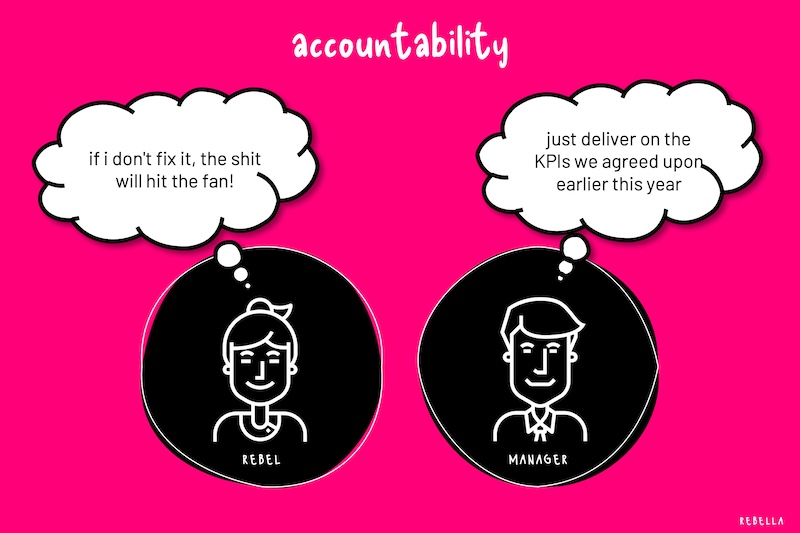
Dr Rebel: Pick your battles
Today’s question: I feel overwhelmed at work because I always end up being the one who has to take the lead. Help!
Congratulations! This means you are clearly competent, and others see it. You can’t stand watching things fall apart or move slowly, so you jump in, again and again. You always give 200%, sometimes even more. People follow you because you’re fast, organised, and you know exactly what you are doing.
But here is the catch.
Others get lazy or passive around you because they know you’ll get the job done. The more you take on, the more they lean out. Over time, your competence becomes your Achilles’ heel. You’re rewarded with more work and responsibility, but rarely with the recognition or authority (or pay) that should come with it.
Rebel pitfall
Rebels are defined by their strong sense of responsibility. Rather than shying away from problems, they face them head-on and get things done, even when it’s outside their official role. And when they commit to something, they go all in. They don’t rely on quick fixes that will fall apart later. Instead, they go the extra mile to solve the issue for good. The team knows this… and takes advantage of it. Meanwhile, you are the one working yourself to the bone.
Why tell me why
Basically, you end up in this situation because of who you are (your own habits and fears) combined with the context you are in (e.g. poor team dynamics, bad leadership, or unclear expectations). Take some time to reflect on why you often find yourself in these situations. Think of situations from the past, write down the context, and analyse your role in it. The key is to identify which reasons apply most to you, and then start changing the pattern deliberately.
My 4 favourite strategies
#1: Let others know
Most people have no idea you feel this way. They assume you enjoy being in charge and think they’re doing you a favour by stepping aside. What they don’t see is that it often feels isolating, and that you’re carrying far more than your fair share. Let them know. Be honest about how overloaded you are. And when someone offers to take something off your plate, dare to let them.
#2: Buddy up
Encourage others to speak up. Start by asking them to back you when you speak out, so your manager sees it is not just your opinion, but the shared view of the group. Then, invite them to voice their thoughts, and when they do, echo them. The more you support others, the more confident they will become. Over time, others will start speaking up first. So, make room for that. Don’t be the first to jump in when something comes up in a team meeting. Pause, sit back, and see who takes a leap of faith.
#3: Detour tasks
Most people won’t realise you are overwhelmed, because you look like you’ve got it all under control. To break that illusion, you need to start delegating visibly and in real time. For instance, when someone asks you a question that is not really yours to answer, respond with: “That’s more in X’s area, why don’t you ask him?”, or you can say in a team meeting: “Actually, this falls more within Y’s role or expertise. Can you take it from here?”
#4: Go cold turkey
I would not recommend starting with this strategy unless you have already tried the other three without success. Going cold turkey means completely letting go of all tasks that are not part of your official responsibilities. If things stall or fall apart in your absence, that’s not a reflection of your failure, but a clear sign that the system itself is not working.
When that happens, stay constructive. Use it as an opportunity to open a conversation about how to fix the structure, without falling back into the trap of taking everything on yourself again. And if the shit doesn’t hit the fan and others step up? Enjoy the ride and celebrate that win.
Feel comfortable with feeling uncomfortable
You may think you’re being helpful by stepping up, but before you know it, you’re being trapped in a role you didn’t sign up for. Although this place probably feels familiar, even natural, staying there won’t serve you in the long run.
To move forward, you will need to break the cycle. And yes, that feels uncomfortable at first. But the more you practice stepping back, the easier it becomes. And once you do, enjoy the space you have created and use it for one of the millions of ideas that are still on your rebel to-do list.

do you have a burning question for dr rebel?


